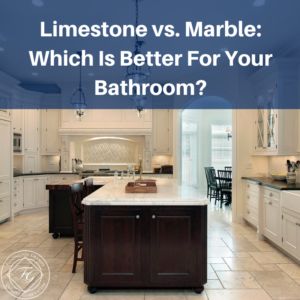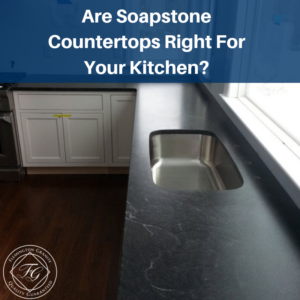
Choosing a new countertop can be exciting but frustrating at the same time. With so many options to choose from, it can be difficult to know which type will work best for your family. Granite countertops are the most popular option for many reasons, but there are things you need to know before you choose granite for your home.
A Green Product
Although granite is an entirely natural product, it takes thousands of years to create. For this reason, granite is not considered “green.” The industry has taken steps in recent years regarding responsible quarrying and production. The counters contain no harmful chemicals nor do they emit dangerous gasses or radiation, so they are a more sustainable option than other types of counter.
Backsplash Options
In most cases, a separate 4-inch piece of the stone slab used to make the countertops is used to create the backsplash. It is then adhered to the counter separately as coved backsplashes available with other types of counter are not available in granite. You may also want to choose a tile or full-height granite backsplash, depending on your kitchen style.
Colors Available
Mother Nature controls what colors granite comes in and this can be somewhat limited. There aren’t many solid patterns or strikingly bright colors. Ask to see the exact slab of granite that will be installed to get a good idea of what the entire slab will look like. Some unique patterns of granite have large, flowing waves so that a small sample will not represent the entire slab.
Maintenance
Granite countertops require very little maintenance as technology for sealants has come a long way over the past few decades. Many sealants last ten years or more and, when they do need to be reapplied, it si something you can do on your own.
Natural Substance
Although granite may not be considered truly green due to the way it must be quarried, it is a natural product, created in nature. This helps reduce exposure to harmful chemicals. Quartz countertops are sold as natural stone but they do include a small percentage of resin that is not found in granite counters.
Price of Granite
For an average sized kitchen, granite can cost between $3,000 and $4,000 depending on the type of granite chosen. There are many variables that can impact cost including how much countertop you have, the edge you choose, the backsplash and more. Lower-range granite is also available and may be more affordable. The final cost should include material, fabrication and installation.
Repairing Granite
Although it is rare for granite to chip or crack, it can happen if something heavy is dropped on the counter. When this happens, you need to have your granite repaired by a professional. If you like using cast iron pans, be very careful when placing them in an undermount sink as the edge of the cutout is a common place for chipping. More than likely, you will find you have more broken dishes than you will a broken countertop.
Resistant to Chemicals
Acids and bases will not harm the surface of granite as they do other types of countertops, even other types of stone. It is important to choose mild cleansers and to wipe up spills quickly as repeated exposure could damage the sealant. Harsh chemicals can also damage the surface requiring you to reseal your granite sooner than you should.
Resistant to Heat
Granite is heat resistant which means you can remove a pan from the stove and place it directly on the surface. Using a trivet or hot pad is recommended, however, as there is a chance that heating only one small section and not the entire counter could lead to cracking.
Resistant to Scratches
Granite is one of the hardest surfaces on Earth, scoring a seven on Moh’s Scale of Hardness. This means that there is very little that can scratch granite. You can cut directly on granite’s surface, although doing so could dull your knives.
Resistant to Stains
If you choose a dark colored granite, you may not even require sealant to protect your counter from stains. Lighter granites, however, may require multiple coats of sealant to protect it. Regardless, even though granite is porous, it is highly stain resistant.
Sealing the Surface
Granite is porous which is why most fabricators seal the countertops before they are installed. This protects them from absorbing liquids. If your counters are not sealed, liquids left on the surface will be absorbed but they may also evaporate. There are cleaning products that can remove stains from granite, including permanent marker which can leave permanent stains on other types of counter surfaces.
Undermount Sinks
One benefit to granite over other types of counter materials is that you can install an undermount sink. This allows you to wipe crumbs, liquids and other items directly into the sink as there is no lip or edge. This makes cleaning your counter much easier.
Unique Options
Granite offers many unusual, unique and exotic options. Although unique granite styles cost more, sometimes as much as $400 per square foot, they do create a stunningly beautiful look in any kitchen, bath or other room in your home.
Visible Seams
Depending on how large your kitchen is, you can expect at least two to three seams. Most slabs are 9 feet by 5 feet, so if you have a large counter area, you will have more seams. Fabricators can usually mix custom color epoxy to seal the seams so they are fairly well disguised.
If you are considering granite countertops, give us a call today or complete the easy online form to learn more about what options would be best for you and your family.






